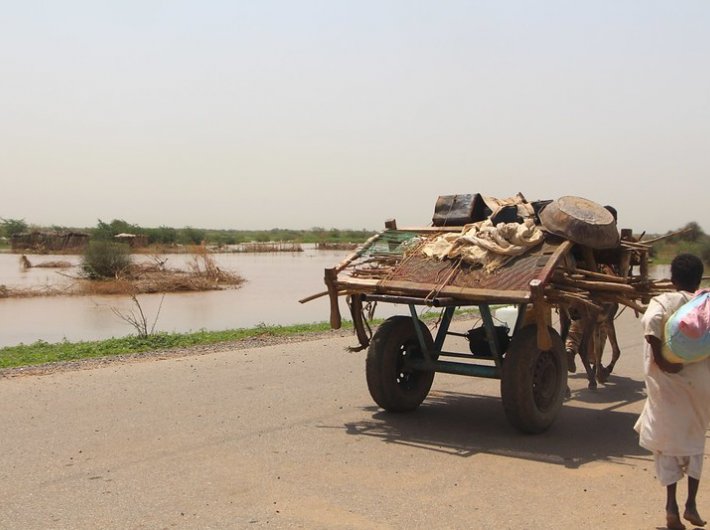Rigmarole of regime change between Christians and Arab Muslims has mired the nation into a perpetual morass of uncertainty and instability bordering on to a political conundrum
South Sudan is no exception to the rule that a state of anarchy prevails in the large dark continent in the want of effective diplomacy and conflict resolution. It’s not that the aforesaid take on Africa is very much symptomatic of the larger troubles which bedevil the continent. Sudan is rich in natural resources including minerals, oil and natural gas reserves. Thus, Sudan too is perched about a gunpowder keg. All in all, the Sudanese quagmire diverts our attention to the fact that it is also faced with the rut of an imbecile and immature political culture which makes the dictatorships and unbridled military rule the nom de plume in that country since the past few decades.
Al Fatah Burhan heads the North Sudan’s Regime of the day along with the governmental armed and defence establishment. His bete noir in South Sudan was also once his coalition partner who is now his arch antagonist in a madcap race which has entered the categorization of full blown military confrontation between North and South Sudan. The conflict has spilled over to the neighbouring nations, Chad and Ethiopia. The influx of thousands of refugees to Chad has been grudgingly accepted by that nation in a statement which was issued by Chad’s establishment. Still, the dark continent is not as dark as ever as innumerable humanitarian agencies led by the United Nations and the African Union have been striving to replenish the human security needs of the besieged population of a war-torn Sudan.
Despite the passage of the Comprehensive Peace Agreement (CPA) in 2005, the rigmarole of regime change between the Christian community and the Arab Muslims has mired the nation into a perpetual morass of uncertainty and instability bordering on to a political conundrum. Also, the nation’s search for democracy has become a defeated cause in the light of the interests of the power elites along with the power-hungry military elites and a rather manipulated civil society. One can refer to the Rwandan massacre and genocide in 1994 where in the populations of Hutus and Tutsis clobbered each other with maces and swords while the entire world slept in pretty nonchalance. Even, President Bill Clinton who visited Kigali, the capital of Rwanda, in 1996 two years after the mayhem, went on to comment that, “While the employees and workers in western offices were busy sipping coffee from their office vending machines and working on their mundane word processors in the western capitals and the United Nations’ headquarters, a genocide mutilated the heart, soul and the tangibility of sanity in Rwanda.”
The mainstay of the conflict lies in the vicinity of twin oil reserves of the order of Bentui and Heglig which have emerged as the bone of contention between the twin Sudans wherein both these contested locations reside on the undecided and undemarcated borders between North and South Sudan. The recent war too plays on to the method through which the RSF had to be incorporated into the mainstay Sudanese army. To make matters worse, a military coup in 2021 endangered the apple cart of democracy wherein a military general named General Al Fatah Burhan took over the reins of power after the ouster of Omar Al Bashir, adding to a further escalation of conflict and acrimony in the confines of the besieged nation state of Sudan.
It was decided that in the aftermath of Omar Bashir’s rule, elections would be carried out in Sudan but the reining General Burhan too has promised civilian rule and his ministrations are too vile to usher in conditions leading to the creation of a workable democracy to begin with. Both the factions have two sizeable land masses within their influence and control with a large functional military too at their disposal making the probability of a detente and ceasefire rather farfetched. It has already been observed that the ceasefire reached a few days back between the warring denominations has been breached by both the factions leading to intense urban warfare in the city of Khartoum escalating the level of collateral damage and infrastructural carnage in the national capital akin to the Russian invasion and missiling and artillery barraging of Ukraine’s cities such as Kyiv, Kherson, Bakhmut and Luhansk.
The all-pervading pertinent poser is about the efficacy and the functional utility of international organizations such as the UN and the African Union. Have the they failed to deliver in Sudan and larger Africa and can they unearth the linkage between the ides of food security and conflict resolution in Sudan and in other conflict hot spots in the besieged Africa?
Dr. Manan Dwivedi is Faculty, International Relations and International Organizations, IIPA.


